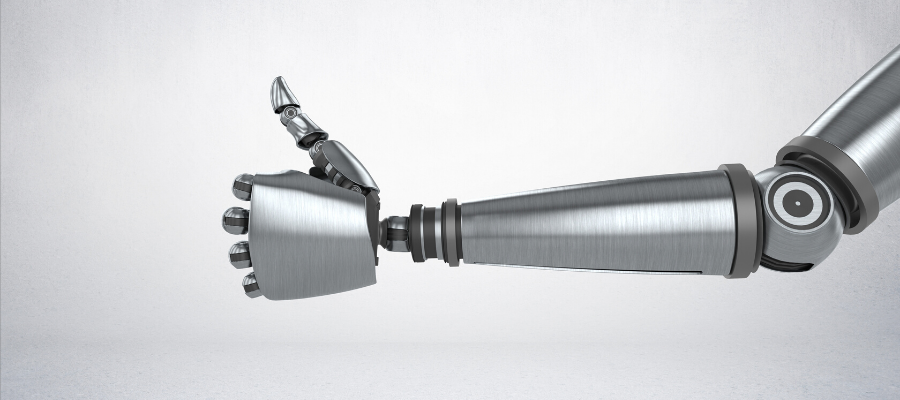Turbo-Charging the Mind
Dec 30, 2012The rapid advance of computer technology in recent decades has produced a vast array of intelligent machines that far outstrip the human mind in speed and capacity.

As automation displaces human labor, a universal basic income (UBI) plan may seem like the perfect solution. Introduce UBI, so that displaced workers have a basic income to fall back on. The idea seems simple enough.
But why wait for UBI to mitigate the impacts of automation? The proposal is attractive (a UBI could eliminate poverty, for example, and that's no feat to underappreciate), yet some advocates of the plan may accept the current trend of technological advancement in the workplace too fatalistically. They accept that artifical intelligence could eventually obviate the need for human labor.
In her article with UC Berkeley's Labor Center, Annette Bernhardt challenges this assumption. Rather than allow innovation to take the lead or wait for a UBI system to mitigate its effects, she argues, humans should regulate the impacts of technological advancement on our workforce. Bernhardt proposes three strategies of interventionism of varying degrees, whereby we create "oversight structures" to assess the social impacts of tech.
One current example of oversight is the Partnernship on Artificial Intelligence to Benefit People and Society, a consortium formed in 2016 by major tech companies such as Google, Amazon, IBM, and Facebook. The partnership aims to assess whether its constituents' practices promote social good. But, as Bernhardt notes, the communities and workers who are ultimately affected by the tech industry's decisions do not have a seat at this proverbial Round Table. Shouldn't their partnership, she asks, listen to citizens' voices, too?
No matter where you tip on the balance, Bernhardt's ideas are important to consider. Read them here:
http://laborcenter.berkeley.edu/beyond-basic-income-claiming-our-right-t...
Comments (2)
Harold G. Neuman
Friday, December 15, 2017 -- 12:50 PM
I have a UBI. It's called aI have a UBI. It's called a retirement pension. Or, it might have been just as easily named: retirement penALTY. The thing about it is that for as long (or short) as I live, I will never again be able to get meaningful pay increases and am just as likely to suffer loss of income---while, all the while costs of living continue to increase. UBI sounds pretty utopian, therefore, it seems to me, capitalism would never stand for it. Bernhardt appears to take a middle road approach, which might well work, but would surely sustain push back from economic theorists and probably others. The old rule says you can't get something from nothing. Communism didn't work out so well either...
moogaula
Monday, December 18, 2017 -- 7:41 PM
It's hard to argue againstIt's hard to argue against basic human needs. Everyone should have the four walls. A UBI sounds like a good idea but isn't there a chink in the armor of societal provision? The human condition. For however many well-intentioned people and actions there are, there will always be at least one person who takes advantage of the system.
If we had the automation and technology of the Star Trek universe. Everyone's basic needs would be met and exceeded by every stretch of the imagination. I would argue that that basic human nature would forever rear its ugly head and some form of greed would protrude.
Technology and automation are only going to increase. I don't think, however, that the rise of technology will prove to be the downfall of the working man. Rather, I believe it will be transformative.
Even though there is merit in work, we do not relish in the pure turmoil of our labors. Instead, we seek to discover the reward that is the pride in what we have accomplished. No matter the labor, from the dirtiest sewer scraper to the high octane exec in a lavish corner office in the tallest skyscraper, our work must have meaning... we demand it.
Automation will not simply replace our efforts only to leave us twiddling our thumbs and wondering what to do with all our spare time. No, it will transform us. Our industrial and technological revolutions have happened in roughly the last one hundred years. That rate of achievement in comparison to the rest of recorded human advancement is astonishing. The thought of where we will be in the next 50 years is astonishing.
A UBI, while a nice utopian idea, can never take hold. It would be the UBI that puts us asunder. While there is a place for a commonly agreed upon social net, the government cannot dictate the well being of every individual.
Individual responsibility must be taught.
I think the UBI concept should be kept at the parental level. I think the onus of bringing our children up into productive members of society should be bourne by the family. I think a UBI puts the burden of those that can't or won't on those that can and do.
Thanks for letting me respond.
-Keith